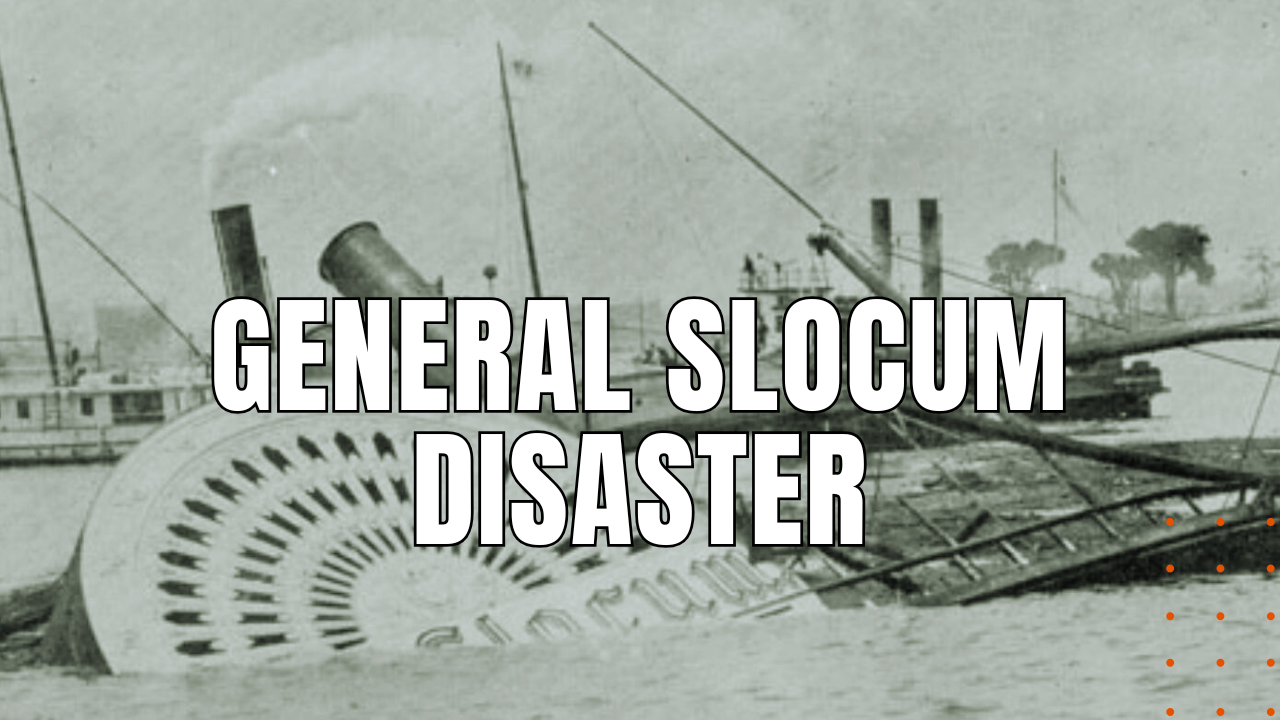General Slocum Disaster of 1904

Built in Brooklyn in 1891, the side wheel passenger steamship General Slocum clocked in at 264 feet, comprising three decks with a licensed capacity of 2,400 passengers.
On June 15th, 1904, the Slocum was chartered for $350 by the St. Mark’s Evangelical Lutheran Church in the Little Germany district of Manhattan. Comprised of mainly women and children, 1,400 passengers boarded the ship for a leisurely cruise to Locust Grove on Long Island Sound for an annual picnic.
The General Slocum Fire
Thirty minutes into the cruise a fire broke out in the Lamp Room, quickly spreading to a paint locker filled with flammable liquids and a cabin filled with gasoline. The ship’s owners had made no effort to maintain or replace the Slocum’s safety equipment, and when the crew freed fire hoses to fight the fire, the rotted canvas fell apart in their hands.
Lifeboats were tied and in some cases wired and inaccessible, while survivors reported that life preservers fell apart in their hands. Desperate mothers placed life jackets on their children and tossed them into the river, only to watch in horror as their children sank in their rotted equipment.
It was later discovered that most of the life preservers had been filled with cheap and less effective granulated cork and then brought up to proper weight by the inclusion of iron bars. The life preservers had been manufactured in 1891 and had hung above deck, unprotected from the elements for 13 years.
Captain Van Shaick decided to continue his course rather than run the ship aground or stop at a nearby landing, which only fueled the flames with ongoing headwinds.
Flammable paint also helped to spread the fire, and when desperate women jumped from the ship, their heavy woolen garments quickly dragged them under water. Many more died when the burning decks collapsed, while other were battered by the still-turning paddle wheels when they attempted to escape the flames for the East River.
Victims and Survivors of General Slocum
By the time the Slocum sank in shallow water near North Brother Island, an estimated 1,021 people had either burned to death or drowned. Of the 321 survivors, only five of the 40 crew members had died.
Reports indicated that Captain Van Schaick deserted ship as soon as it settled on the bottom, jumping into a nearby tugboat along with several of his crew. Eyewitnesses reported that his jacket was hardly even rumpled.
Of the eight people indicted by a federal grand jury in the aftermath of tragedy, only Van Schaick would be convicted of criminal negligence. The neighborhood of Little Germany, which had been in decline for some time before the disaster, almost disappeared in the aftermath of the fire.
